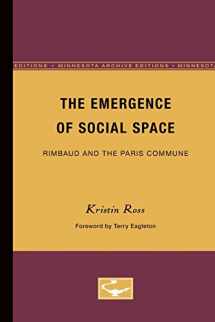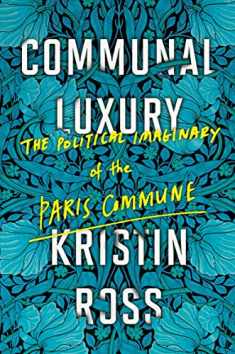
The Emergence of Social Space: Rimbaud and the Paris Commune (Theory and History of Literature, Volume 60)
Book details
Summary
Description
The 1870s in France - Rimbaud’s moment, and the subject of this book - is a decade virtually ignored in most standard histories of France. Yet it was the moment of two significant spatial events: France’s expansion on a global scale, and, in the spring of 1871, the brief existence of the Paris Commune - the construction of revolutionary urban space. Arguing that space, as a social fact, is always political and strategic, Kristen Ross has written a book that is at once history and geography of the Commune’s anarchist culture - its political language and social relations, its values, strategies, and stances.
Central to her analysis of the Commune as social space and oppositional culture is a close textual reading of Arthur Rimbaud’s poetry. His poems - a common thread running through the book - are one set of documents among many in Ross’s recreation of the Communard experience. Rimbaud, Paul Lafargue, and the social geographer Elisee Reclus serve as emblematic figures moving within and on the periphery of the Commune; in their resistance to the logic and economy of a capitalist conception of work, in their challenge to work itself as a term of identity, all three posed a threat to the existing order. Ross looks at these and other emancipator notions as aspects of Communard life, each with an analogous strategy in Rimbaud’s poetry. Applying contemporary theory to a wealth of little-known archival material, she has written a fresh, persuasive, and original book.


We would LOVE it if you could help us and other readers by reviewing the book
Book review




